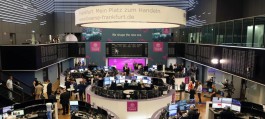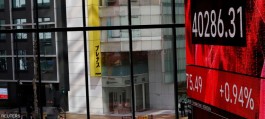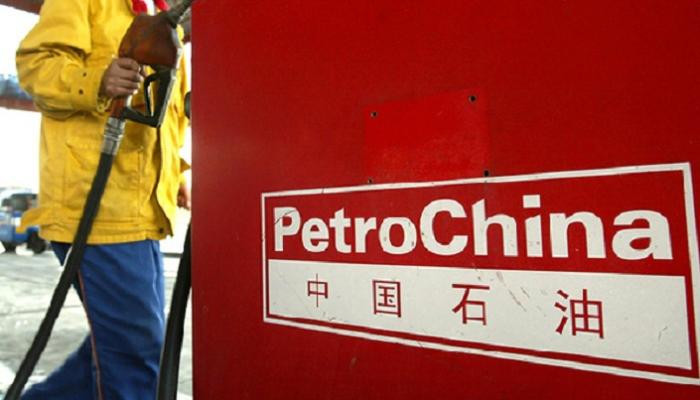China's oil and refining giants have taken opposing positions in the Middle East crude oil trade for years, transforming global shipping flows and confusing oil market participants around the world.
The movement of Dubai crude fluctuated violently throughout the month of June, largely due to heavy buying and selling offers from two trading units, one of which follows PetroChina, the largest oil company in China, and the other is Sinopec, the largest refiner in the Asian giant. This intensified over time, overwhelming other entities.
An unusual Chinese clash
Publicly clashing between state-owned Chinese giants is not uncommon, and in this case, the behavior of the two companies in the market for this crude, which is the main benchmark for oil prices in the Middle East, is very strange, because both are large refiners that should, in theory, be careful Obtaining crude oil at the lowest possible price. But PetroChina's Hong Kong unit orders oil - and buys cargoes as a result - while Sinopec subsidiary Unipec offers and sells cargoes.
We did not receive a response to emails sent to the media office of PetroChina and Sinopec seeking comment.
This June, investors traded over 1,000 derivatives contracts on the dynamic pricing platform that determines Dubai crude prices - nearly three times the monthly average in 2023, and the highest volume in years.
China's largest oil producer lowers its forecast for demand for crude
At least 10 other traders said the activity — which was surprising to all, given the normal patterns of Chinese entities — made it difficult to ascertain the real strength of the Middle East oil market, a pivotal part of oil supply chains, and the state of China's recovery.
The Dubai crude price underlies almost all exports from the Middle East, including Saudi Arabia. This means that any increase or decrease in the price of this crude is directly reflected in the ability to bear the costs of oil purchases from all over the region, and the number of barrels that flow from other places in the world to Asia.
Dubai Platz platform
This boom may also have helped boost markets selling types of oil similar to those in the Middle East. Norway's Johan Sverdrup crude jumped nearly $1 a barrel after Unipec bought Dubai crude.
Traders said the changes in global freight flows might not have happened without the sharp rise in Chinese activity.
In the futures market, Dubai crude contracts are much smaller than Brent and WTI contracts. However, in the past few months, the number of open positions in Dubai Crude contracts has increased significantly - a sign of increased liquidity flow and demand.
International Energy Agency: China's economy is the main catalyst for the oil market
The bids and offers on the Platts Dubai platform are usually a reflection of the companies' view of the Middle East market. Dealers can buy and sell partial Dubai crude contracts through the platform, provided that shipments are actually delivered to crudes including Oman, Upper Zakum and Dubai after 20 deals.
Unipec heavily offers Dubai partial contracts, derivatives that, when combined, allow dealers to sell entire cargoes of oil from the region. The company has so far delivered 37 cargoes - or 18.5 million barrels - to different buyers. PetroChina Hong Kong bought 11.5 million barrels.
France's Total Energies was the most requested to buy oil, before it was now overtaken by PetroChina. Total also sells cargoes in a parallel pricing window, the North Sea, on most days this month.
An ancient Chinese rivalry
The two Chinese giants previously competed in 2015 when a unit of China National United Oil Corp, parent of PetroChina, bought 36m barrels of Middle Eastern oil, mostly from Unipec.
Platts, a unit of S&P Global that operates the pricing platform in Dubai, was not available for comment at the time of publication.
In early June, a sell-off by Unipec indicated that the company was reluctant to purchase large quantities from the Middle East. Instead, it bought supplies from the North Sea and the United States, which raised the cost of some crude grades priced on the basis of the benchmark Brent crude.
An audit campaign prompts Chinese refiners to increase their purchases of fuel oil
Dealers said Middle East oil prices are now looking cheaper, so it is possible that Asian refiners will consider picking lower volumes of crude oil from Saudi Arabia next month, seeking more affordable replacement barrels. Shipments from the cheaper spot market have already piqued interest from China's Rongsheng Petrochemicals and Taiwan's Formosa Petrochemical, underlining the widespread impact of the platform-pricing battle.
Extreme volatility
Volatility is still very high as well. In the past week, spreads in the spot market for Oman crude tripled and then decreased again. Dealers said that the movement centered on fears that there might not be enough shipments to match the volume of sales through the platform, although the continuation of sales in partial contracts calmed these concerns.
Since most trading activity in Asia takes place on monthly cycles, it is likely that positions will be liquidated when contracts expire this week at the end of June. Previous executives have been suspended for heavy losses, most notably Unipec President Chen Bo in 2018.







































